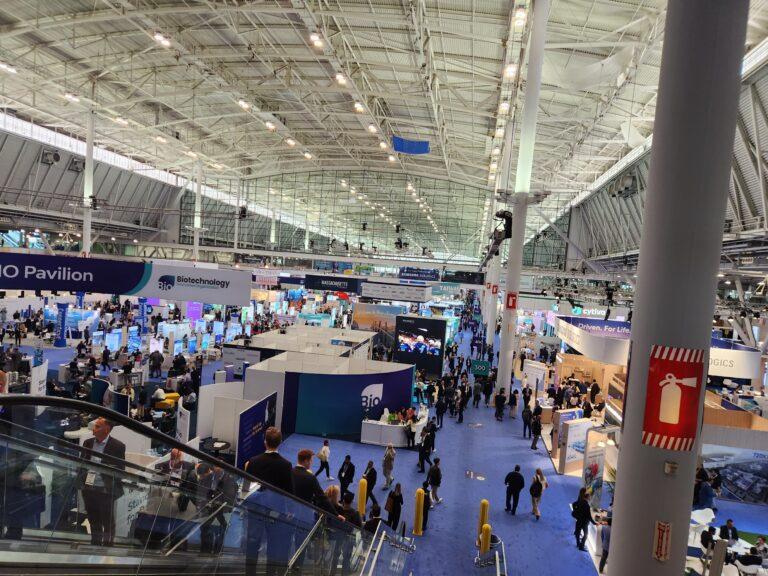· New antibody program targets Tau protein, a major cause of Alzheimer’s disease
· License agreement potentially worth more than Swiss Francs 400 Million (approximately USD 418 million*)
Lausanne, Switzerland, 18 June, 2012 – AC Immune SA, today announced that it has entered into a second exclusive worldwide license agreement and research collaboration with Genentech, a member of the Roche Group (SIX: RO, ROG; OTCQX: RHHBY) for the research, development and commercialization of AC Immune’s anti-Tau antibodies for the potential treatment of Alzheimer’s disease and other neurodegenerative diseases.
Under the terms of the agreement, AC Immune will receive an undisclosed upfront payment and is eligible to receive research, development and commercialization milestone payments totaling more than Swiss Francs 400 million (approximately USD 418 million*) for Alzheimer´s disease and other indications. Additionally, AC Immune is eligible to receive royalties on net sales of products resulting from the collaboration. Under the multi-year joint research collaboration, AC Immune will work in partnership with Genentech to identify and formulate several pre-clinical candidates. Genentech will have global responsibility for pre-clinical and clinical development, manufacturing and commercialization of antibodies resulting from the collaboration.
Prof. Andrea Pfeifer, CEO of AC Immune said: “We are delighted to continue our excellent relationship with Genentech through this second landmark deal to fight Alzheimer’s disease. This underlines Genentech’s trust in AC Immune’s proprietary technology platform and we are confident in our joint abilities to develop not only
first-in-class but also best-in-class medication for one of the biggest healthcare problems of this century.”
“This second licensing deal gives us financial security to continue AC Immune’s
world-leading efforts to develop disease modifying therapies and diagnostics. We are now recognized as having one of the broadest and most advanced Alzheimer’s pipelines in the industry”, remarked Martin Velasco, Chairman of The Board of AC Immune .
Commenting on the deal, James Sabry, Genentech’s Vice President of Partnering , said: “Genentech is committed to bringing innovative treatments to patients suffering from devastating neurodegenerative diseases, and is developing a number of approaches to tackle Alzheimer’s disease. The addition of this anti-Tau program to our CNS pipeline complements other approaches we are investigating, including crenezumab which we in-licensed from AC Immune in 2006.”
About the anti-Tau Program
The Tau protein forms twisted fibers inside brain cells and build tangles that are considered by many in the scientific community as the second major cause of Alzheimer’s disease besides Abeta-plaques. The anti-Tau antibodies were discovered and humanized by AC Immune through its proprietary SupraAntigen TM technology.
“The anti-tau-antibodies have proven highly specific to misfolded Tau in relevant animal models for Alzheimer’s disease and are therefore well suited to be developed as a disease-modifying drug. This has significant potential as there are at present no known cures for Alzheimer’s disease,” said Dr. Andreas Muhs, Chief Scientific Officer
of AC Immune .
About Crenezumab
An anti-Abeta antibody, crenezumab was discovered and humanized by AC Immune. It is designed to bind to amyloid beta (Abeta), the main constituent of amyloid plaque in the brains of patients with Alzheimer’s disease. Abeta is considered to be a major cause in the development of the disease. Genentech is currently evaluating crenezumab in a Phase II clinical study in Alzheimer’s patients with mild to moderate symptoms. At the time the deal with Genentech was announced in December 2006, it was stated to have a potential total value of more than USD 300 million in clinical and regulatory milestone payments to AC Immune, excluding royalties.
In May 2012, crenezumab was selected to be tested in the world’s first-ever prevention trial in healthy individuals who are genetically destined to develop Alzheimer’s disease. This landmark study to investigate whether an anti-amyloid treatment can stave off the disease is being run by the US National Institutes of Health (NIH), the Banner Alzheimer’s Institute (BAI), the University of Antioquia in Colombia and Genentech.
About Alzheimer’s Disease
Alzheimer´s is the most common form of dementia. It is degenerative, irreversible and terminal. The memory and thinki ng of the patients is progressively destroyed. Besides the personal aspect there is a huge social and economic impact. Alzheimer´s disease is recognized as a significant health crisis of the 21st century with currently more than
36 million patients worldwide. This number is expected to double in the next 20 years and to triple to more than 116 million by 2050. In 2010 global worldwide costs were estimated to be USD 604 billion and were exceeding 1% of the global domestic product (Reference: World Alzheimer Report 2011, Alzheimer’s Disease International).
Scientists don’t yet fully understand what causes Alzheimer’s disease, but it has become increasingly clear that it develops because of a complex series of events that take place in the brain over a long period of time. Two proteins – Tau and Abeta – are perceived as the major causes of neurodegeneration: tangles and other abnormal forms of Tau protein accumulate inside the brain cells, while plaques and oligomers formed by Abeta occur outside the brain cells of people with Alzheimer’s disease.
About AC Immune SA
AC Immune SA is a Swiss-based biopharmaceutical company and a leader in Alzheimer´s disease drug development. AC Immune develops innovative therapeutics with “best in class” potential against Alzheimer´s disease and other conformational diseases along three axes: vaccines, antibodies and small molecules. The anti-Abeta antibody (crenezumab) for passive immunization is partnered with Genentech and is in Phase II development. The company continues to develop in house the small molecule ACI-91 and the vaccine ACI-24 in Phase II and Phase I/IIa clinical development respectively. These three clinical programs are focused on Alzheimer’s disease, and are backed by a rich portfolio of preclinical compounds. The therapeutic molecules are also leveraged for Alzheimer´s disease diagnostic and other central nervous system and non-CNS diseases, such as Glaucoma. Since its foundation in 2003, AC Immune has raised CHF 64 million from private investors.
-Anita M. Harris
Disclosure: I will be working with AC Immune at the Biotechnology Industry Organization today in Boston.
New Cambridge Observer is a publication of the Harris Communications Group, an award-winning strategic public relations, marketing communications and thought leadership firm in Cambridge, MA.





1 thought on “AC Immune/Genentech to Partner on R&D for Alzheimer’s Antibody; $418M Agree’t”